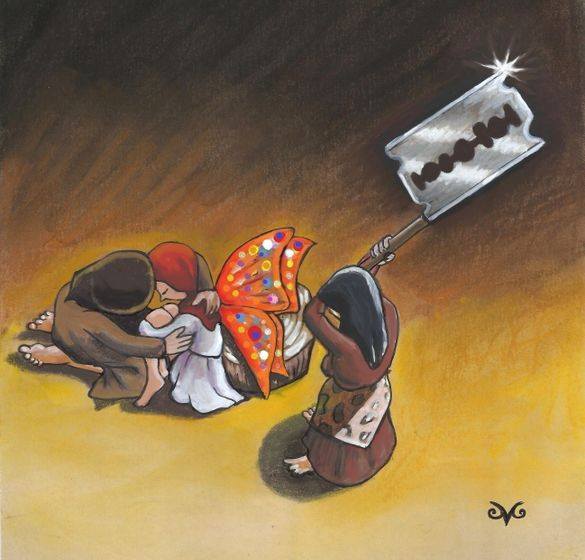By Millicent Mwita
While Kenya has made commendable progress in its journey to end Female Genital Mutilation, the situation in Migori County and Tanzania shows a more complicated picture. Fueled by tradition, secrecy, and cross-border tricks, Female Genital Mutilation is still imposed on young girls, undermining the years of advocacy and community sensitizations towards eradicating this harmful cultural practice.
The Prohibition of Female Genital Mutilation Act, 2011, outlines various offences and stiff penalties for those who practice, aid, and abet the act. Tanzania also criminalizes Female Genital Mutilation under Article 21 of the Sexual Offences Special Provisions Act 1998, where anyone who has custody or care of a girl under the age of 18 years and allows her to undergo the cut, commits the offence of child cruelty. However, the gap lies in the enforcement, interpretation, and implementation of the laws at the community level.
Over the years, families in the rural grassroots are getting smarter and more desperate to evade surveillance and law enforcers by crossing over into Tanzania when the anti-FGM measures intensify, dressing the girls in boys’ ceremonial clothes to avoid raising suspicion and trail, secretly having the cutters do the practice at home during the night and disappear through the border by morning making it hard to trace and hold them accountable.
To address this, stakeholders from both Kenya and Tanzania need to harmonize their anti-FGM and enforcement laws by aligning the legal definitions, penalties, and prosecution procedures, enabling joint task forces to track and respond to Female Genital Mutilation cases that move across the border. A shared framework will empower law enforcers and community surveillance teams to act swiftly on alarms without jurisdictional delays.
Joint community sensitization forums on both sides of the border are equally important to break the cycle of silence and secrecy of the practice. These forums must involve the elders, religious leaders, youths, parents, not forgetting the reformed cutters who will confront cultural beliefs that perpetuate the practice. Implementing a clear referral system between Kenya and Tanzania that allows survivors to access psychosocial support regardless of where the act happened
The absence of legal and operational unity, the Kenya-Tanzania border will remain a safe passage for Female Genital Mutilation. But with harmonized policies, laws, and cross-border collaboration, we can protect girls, deliver justice, and finally close the gaps that allow this harmful practice to thrive, not just in one country, but across the entire region.
Millicent Mwita
Youth Advocate, NAYA Kenya.




